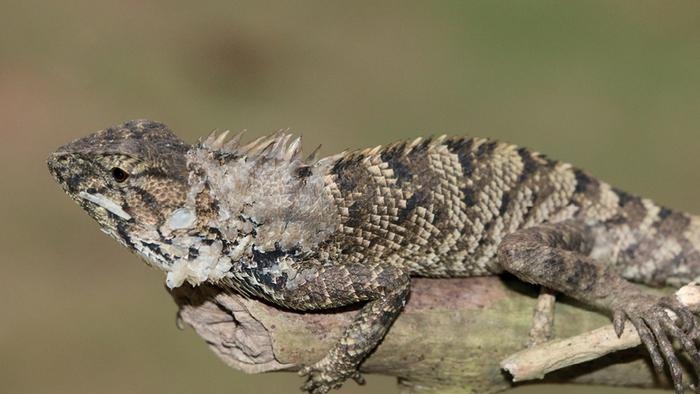Scientists have discovered a new iguana species in China and say the new garden lizard has a unique distinguishing feature.
Researchers from different institutions shared the findings in a study published in the peer-reviewed ZooKeys journal on Dec. 20.
The scientists say they were able to conduct a series of field surveys in South China from 2009 to 2022 and collected several specimens of the Calotes versicolour species complex.
“The population of what we thought was Calotes versicolour in South China and Northern Vietnam was a new undescribed species and two subspecies,” lead author Yong Huang said in a press release Wednesday.
The study reveals that the new garden lizard species—Calotes wangi—is less than 9 centimetres long and has an orange tongue as a distinguishing feature.
The researchers say the lizard is found in subtropical evergreen forests and tropical monsoon forests in southern China and northern Vietnam, commonly in mountainous areas, hills and plains on forest edges, arable, shrubland, and urban green belts.
The lizards are active from April to October every year, and while they are in the tropics, they are active from March to November and longer, the study said.
They eat insects, spiders, and other arthropods, scientists said.
According to the study, when in danger, the lizards rush into bushes or climb tree trunks to hide and, at night, lay on sloping shrub branches.
The new iguana joins Asia’s rich reptile fauna. Researchers say populations were relatively large and estimate the new species is not threatened, but some areas of its habitat are fragmented.
In light of their bodies used medicinally and eaten on some occasions, researchers call on local governments to strengthen the protection of the lizards’ ecological environment and pay attention to its population dynamics.




